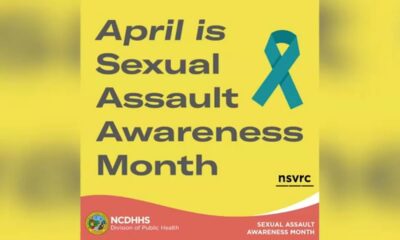News from the South - Kentucky News Feed
Kentucky sees surge of submissions for medical marijuana licenses
SUMMARY: The application deadline for medical cannabis licenses in Kentucky recently closed, with nearly 90% of the 5,000 total submissions received in the last four days. This last-minute influx has created challenges for processing the applications timely. During the Team Kentucky update, Governor Beshear expressed concerns about meeting upcoming deadlines, noting the overwhelming interest from Kentuckians in the program. To address the surge, the state plans to increase staffing to ensure that the application process is completed before the program’s launch in January 2025.

In total, the Commonwealth received 5,000 applications for medical marijuana licenses, far exceeding expectations.
Subscribe to FOX 56 News on YouTube: https://www.youtube.com/c/FOX56News/?sub_confirmation=1
Stay informed about central Kentucky news, weather, and sports! Follow FOX 56 on our website and social channels:
https://www.FOX56News.com
https://www.youtube.com/c/FOX56News
https://www.facebook.com/FOX56News
https://twitter.com/FOX56News
https://www.instagram.com/FOX56News
https://www.linkedin.com/company/FOX56News
News from the South - Kentucky News Feed
Q&A on Louisville’s air as city gets another ‘F’ on national pollution scorecard
by Sarah Ladd, Kentucky Lantern
April 25, 2025
After news that Louisville’s air just received a failing grade for its high rates of particle and ozone pollution, a UofL Health researcher and nurse practitioner says the news is not surprising and steps can be taken to protect people’s health.
Rachel Keith, a nurse practitioner with UofL’s preventive cardiology clinic and a clinician researcher with the Environment Institute, said that while Louisville has “had occasions to kind of bounce up a little bit and get better” it’s been in “that F range for a while.”
During a press conference Thursday, Keith discussed the “State of the Air” report, which the American Lung Association released Wednesday.
The report showed that Louisvillians spend more than a week every year breathing unhealthy air. In Louisville, “unhealthy days” for ozone pollution number eight per year on average — an increase from the average of five reported in the 2024 report. Ozone pollution can come from a variety of sources including cars, power plants, industrial boilers, refineries, chemical plants and more, according to the U.S. Environment Protection Agency (EPA).
Here’s more of what Keith had to say about the report. This Q&A has been edited for length and clarity.
Question: Why does Louisville have such poor air quality?
Answer: Air quality has two main pieces that the American Lung Association looks at. One is gaseous compounds. The one that we tend to do really poorly on is something called ozone, and the other is particulate matter.
Louisville has really high levels of something called NOx (nitrogen oxides) and we also have some high levels of things called VOCs (volatile organic compounds).Think of these as gasses that readily react in the air when you add sunlight on top of it. They mix into this three-oxygen compound called ozone that’s really bad for health.
Here in Louisville, we have high sources of those emissions that come from combustion, and particularly the NOx — that can be roadway, that can be industry, that can be different sources of it. We also have this stagnant air that comes with being in the river valley.
So, we have the stagnation of air, we have high production and we have a weather and air pattern that brings other regions’ air into our area. And all that with our sunlight, especially that we have in summer, leads to really high levels of these compounds and these air pollution factors that can affect health.
Q: What exactly is ozone pollution?
A: Ozone is a gas. Gas is like air; it’s a light molecule, a light compound. It has three oxygens, and it can be reactive and highly reactive.
In particular, in Louisville, we have a lot of that really highly reactive ozone, which, as it implies, means that it can interact with lots of things. It can interact with a human and make them unhealthy, but it can also do damage to plants and crops and these other aspects of our environment.
Q: Are there risks for people in their day-to-day lives from this pollution?
A: I think everyone, when you think of a gas or air, things like this, immediately it goes to the lungs. And there are risks for lung problems. It can trigger asthma, it can lead to asthma. People who have COPD or other breathing conditions — this can contribute to that.
But I think the lesser known and lesser thought about health conditions are really important too. Long term exposure to these, and even at somewhat low levels — so not like you’re looking outside and see smog — can lead to heart disease, strokes, can affect diabetes. There’s now links of air pollution to autism, Alzheimer’s.
Your whole body is negatively impacted by these compounds. Unfortunately in our city, they’re really high, so it’s going to lead to people having detrimental health problems from the air they breathe.
Q: Are there any signs and symptoms that people should be on the lookout for?
A: Those ones that you’ll see are definitely related to respiratory conditions. So they’re asthma, people with COPD. It can be trouble breathing, feeling what we call ‘air hungry,’ — even though you are breathing, you feel like you’re not getting enough — wheezing.
Most people have very distinct symptoms to their particular condition, and so those are the ones you’re going to see right away.
What’s harder are those that take 10 to 15 years to really manifest, because you don’t feel your arteries hardening. You don’t realize you’re not getting the blood flow, or the proteins may be changing in your brain. Those are the ones that I think are most scary, because people don’t know they’re happening until it’s too late, and they have a big problem with it.
Q: Is there a way to progress past an F — even to a D or a C? What are things people can start doing to help?
A: The easy answer is: you have to reduce emissions. That’s the easy answer. That means, if you bring down NOx, if you bring down VOCs, your air quality will change.
The hard answer is, how? One simple thing I typically think about is: if we say a lot of this comes from combustion and automobiles, Louisville is a big commuter city, and so there are simple choices people can make that could impact our air quality.
One of them that an individual could do was, if you think of a car pool line or at a drive through restaurant or places like that, whether you choose to idle or turn your car off, makes a huge difference.
On a policy level, supporting things that can make public transportation easier or more available, things like bike lanes and sidewalks that also could potentially change the dynamic of our transportation in the city are very easy ways to think through a way for us to reduce emissions.
Q: What effect, if any, do disasters have on air pollution? What about the 2024 Givaudan Sense Colour explosion?
A: All these are going to affect it.
Wild fires and explosions, industries, controlled burns that sometimes happen — these all impact air quality. In particular, in 2024, we had those emissions blowing down from up north (Canada). That year was absolutely impacted by wildfires. And it also goes to show that those can be in a whole other area, region, country, and our air quality changes with it.
Q: Does air pollution ever lead to acute problems?
A: Asthma attacks are a very relevant acute problem, as is an exacerbation of COPD, but it can change your heart rhythms.
We do think that there’s a potential for those to trigger heart attacks, but the duration you’re exposed and the levels plays into that. It’s not a given, but there are studies that suggest even things like an acute heart attack can occur at these higher pollution levels.
How to reduce personal carbon footprint
The Columbia Climate School offers suggestions for lowering individual carbon footprints. They include:
Avoid buying fast fashion clothes, which result in significant waste, and buy durable clothes or recycled items instead. Think: vintage and thrift stores. Use reusable bags when shopping. Turn off lights and unplug electronics when they’re not in use.Find ways to drive less — carpool, bike, walk or use public transportation — when possible. Travel by airplane as little as possible. When you travel by air, try to book a nonstop flight to create fewer take-offs and landings.
GET THE MORNING HEADLINES.
Kentucky Lantern is part of States Newsroom, a nonprofit news network supported by grants and a coalition of donors as a 501c(3) public charity. Kentucky Lantern maintains editorial independence. Contact Editor Jamie Lucke for questions: info@kentuckylantern.com.
The post Q&A on Louisville’s air as city gets another ‘F’ on national pollution scorecard appeared first on kentuckylantern.com
Note: The following A.I. based commentary is not part of the original article, reproduced above, but is offered in the hopes that it will promote greater media literacy and critical thinking, by making any potential bias more visible to the reader –Staff Editor.
Political Bias Rating: Center-Left
The content primarily focuses on public health concerns related to air pollution in Louisville, highlighting scientific findings and expert commentary without overtly political language or advocacy for specific political parties. However, the emphasis on the need for reduced emissions and recommendations for policy changes, such as improving public transportation and supporting infrastructure that facilitates lower emissions, leans towards a Center-Left perspective that typically advocates for environmental regulations and proactive measures to combat pollution. The involvement of healthcare professionals and organizations like the American Lung Association further reinforces the credibility and urgency of addressing air quality issues, which is a common concern among progressive viewpoints. Overall, while the content is informative and health-oriented, its alignment with environmental advocacy indicates a subtle Center-Left bias.
News from the South - Kentucky News Feed
Immigration drives population growth in Kentucky in 2024
by The Daily Yonder, Kentucky Lantern
April 24, 2025
Thanks to The Daily Yonder’s Sarah Melotte for providing Kentucky’s Census data to the Lantern.
Kentucky’s population grew in 2024, according to the latest U.S. Census Bureau estimates. And over 80% of that growth was due to the migration of people from other countries.
Migration to rural America resulted in population growth last year, census shows
The Census makes yearly estimates of population changes at the state and county level. Here are five items to note from the report on 2024:
Kentucky added a net 37,777 people last year, an increase of .8%. At the end of last year, Kentucky had a population of 4,588,372, according to the Census.Kentucky had more deaths (53,140) than births (52,248) in 2024. That loss was made up by a net increase in domestic migration of 7,294 people. (More people moved into Kentucky from other states than moved out.) The largest contributor to Kentucky’s population growth was international migration. The state gained 31,430 people in the net exchange of people between Kentucky and other countries. Over 80% of the net gain in Kentucky’s population came from international migration. Of Kentucky’s 120 counties, 38 lost population in 2024. A large number of these are places that have been dependent on coal mining.The state’s two largest counties (Jefferson and Fayette) both had decreases in domestic migration, but gained population overall because of international migration. For example, Jefferson lost just over 4,600 people to domestic migration, but gained 13,807 people from other counties. (Counties surrounding these two metro counties gained from domestic migration; some of that growth likely came from moving out of the large metro counties.)
The 2024 report is a snapshot of population trends. And in many ways, Kentucky is like the rest of the nation. For example, most of the population growth in the U.S. in 2024 was due to international migration.
GET THE MORNING HEADLINES.
Kentucky Lantern is part of States Newsroom, a nonprofit news network supported by grants and a coalition of donors as a 501c(3) public charity. Kentucky Lantern maintains editorial independence. Contact Editor Jamie Lucke for questions: info@kentuckylantern.com.
The post Immigration drives population growth in Kentucky in 2024 appeared first on kentuckylantern.com
Note: The following A.I. based commentary is not part of the original article, reproduced above, but is offered in the hopes that it will promote greater media literacy and critical thinking, by making any potential bias more visible to the reader –Staff Editor.
Political Bias Rating: Centrist
This article appears to be a neutral, data-driven presentation of Kentucky’s population growth, highlighting the impact of both international migration and domestic migration. The content focuses on factual information, such as population statistics and county-specific migration trends, without introducing political rhetoric or ideological stances. While the mention of international migration could potentially spark differing political views, the article does not advocate for any particular position or policy regarding immigration. It simply presents the Census data in a straightforward manner, making it centrist in tone and content.
News from the South - Kentucky News Feed
U.S. Education Department to restart defaulted student loan collections
by Shauneen Miranda, Kentucky Lantern
April 21, 2025
WASHINGTON — The U.S. Department of Education said Monday that it will resume collections May 5 for defaulted federal student loans.
After pausing during the early weeks of the COVID-19 pandemic, the agency has not collected on defaulted loans in over five years. More than 5 million borrowers sit in default on their federal student loans, and just 38% of borrowers are current on their payments, the department said.
“American taxpayers will no longer be forced to serve as collateral for irresponsible student loan policies,” U.S. Secretary of Education Linda McMahon said in a statement Monday.
During last year’s presidential campaign, President Donald Trump criticized his predecessor and successor, President Joe Biden, for his efforts to erase student debt. McMahon resumed that line of attack Monday, blaming Biden’s administration for unreasonably raising borrowers’ expectations of forgiveness.
“The Biden Administration misled borrowers: the executive branch does not have the constitutional authority to wipe debt away, nor do the loan balances simply disappear. Hundreds of billions have already been transferred to taxpayers,” McMahon said.
She added that “going forward, the Department of Education, in conjunction with the Department of Treasury, will shepherd the student loan program responsibly and according to the law, which means helping borrowers return to repayment — both for the sake of their own financial health and our nation’s economic outlook.”
The department said the Office of Federal Student Aid will restart the Treasury Offset Program, which the U.S. Treasury Department administers, on May 5.
The Education Department statement said all borrowers who are in default will get emails over the next two weeks “making them aware of these developments and urging them to contact the Default Resolution Group to make a monthly payment, enroll in an income-driven repayment plan, or sign up for loan rehabilitation.”
The department said the Office of Federal Student Aid will “send required notices beginning administrative wage garnishment” later this summer.
More than 42.7 million borrowers owe more than $1.6 trillion in student debt, according to the department.
The administration claims that “instead of protecting responsible taxpayers, the Biden-Harris Administration put them on the hook for irresponsible lending, pushing the federal student loan portfolio toward a fiscal cliff.”
Kentucky Lantern is part of States Newsroom, a nonprofit news network supported by grants and a coalition of donors as a 501c(3) public charity. Kentucky Lantern maintains editorial independence. Contact Editor Jamie Lucke for questions: info@kentuckylantern.com.
The post U.S. Education Department to restart defaulted student loan collections appeared first on kentuckylantern.com
Note: The following A.I. based commentary is not part of the original article, reproduced above, but is offered in the hopes that it will promote greater media literacy and critical thinking, by making any potential bias more visible to the reader –Staff Editor.
Political Bias Assessment: Center-Right
The content primarily reflects a Center-Right political bias, as it focuses on the resumption of federal student loan collections and criticizes the previous administration’s attempts to implement student debt forgiveness. The statements made by U.S. Education Secretary Linda McMahon highlight a commitment to fiscal responsibility and emphasize the idea that taxpayers should not bear the burden of student loan defaults. Additionally, the language used aligns with conservative viewpoints that prioritize personal responsibility and criticize government overspending. The framing of the Biden administration’s actions as misleading further underscores a critical stance typical of a Center-Right perspective.
-

 News from the South - Florida News Feed6 days ago
News from the South - Florida News Feed6 days agoJim talks with Rep. Robert Andrade about his investigation into the Hope Florida Foundation
-

 News from the South - Alabama News Feed5 days ago
News from the South - Alabama News Feed5 days agoPrayer Vigil Held for Ronald Dumas Jr., Family Continues to Pray for His Return | April 21, 2025 | N
-

 Mississippi Today5 days ago
Mississippi Today5 days ago‘Trainwreck on the horizon’: The costly pains of Mississippi’s small water and sewer systems
-

 News from the South - Texas News Feed5 days ago
News from the South - Texas News Feed5 days agoMeteorologist Chita Craft is tracking a Severe Thunderstorm Warning that's in effect now
-

 News from the South - Florida News Feed4 days ago
News from the South - Florida News Feed4 days agoTrump touts manufacturing while undercutting state efforts to help factories
-

 News from the South - Texas News Feed7 days ago
News from the South - Texas News Feed7 days agoNo. 3 Texas walks off No. 9 LSU again to capture crucial SEC softball series
-

 News from the South - Arkansas News Feed6 days ago
News from the South - Arkansas News Feed6 days agoAs country grows more polarized, America needs unity, the ‘Oklahoma Standard,’ Bill Clinton says
-

 News from the South - Virginia News Feed5 days ago
News from the South - Virginia News Feed5 days agoTaking video of military bases using drones could be outlawed | Virginia







































